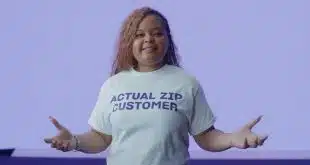Sweeping new executive hires at PayPal Holdings Inc., announced Wednesday, will help cement the 25-year-old payments company’s ambitious new direction under recently appointed chief executive Alex Chriss, observers say.
“This is PayPal flexing who they are now. They want to be recognized by the world as an equal to Visa and Mastercard,” says Cliff Gray, a senior associate at the payments advisory TSG.
Chriss, who arrived from Intuit Inc. to take over the CEO role from Dan Schulman late in September, left no doubt in his first quarterly earnings call that operations and strategy at the company will not be business as usual. “We are future-proofing this business,” he noted during the Nov. 1 conference call with equity analysts. “We are playing to win.”

The new hires represent some of the first moves in PayPal’s new direction. To bolster the company’s position with small firms, Michelle Gill is taking over immediately as executive vice president of a newly formed unit, the small business and financial services group. Gill, like Chriss, arrives from Intuit, where she was responsible for the QuickBooks Money Platform.
Diego Scotti has been appointed an executive vice president for another newly organized unit, the consumer group and global marketing and communications organization. Scotti, who comes from the telecommunications giant Verizon, will take up his new duties Dec. 4. PayPal also appointed Frank Keller, a longtime employee, senior vice president and general manager of the large enterprise and merchant platform group. Isabel Cruz is coming from Walmart to assume the duties of chief people officer.
Chriss, who stressed the importance of growth in that earnings call, said in a statement Wednesday the new corporate units, as well as their new leadership, will “position us to drive meaningful growth for the company.”
Observers like Gray see PayPal under Chriss driving for growth that could position the company to challenge the world’s largest payments networks and processors. The new hires, says Gray, could help support that strategy, particularly in view of Chriss’s apparent ambitions and his work record. “That was his history at Intuit—he brings that assertiveness and he brings innovation,” Gray says.
Indeed, observers like Gray say PayPal under its new leadership could ultimately seek to challenge the dominance of the major card networks at the point of sale. The company started out in 1998 as a peer-to-peer payments utility but under Schulman made strides in mobile payments at physical stores, creating a foundation for such a challenge, Gray says. Schulman came from American Express in 2014 and took over the following year after PayPal was spun off as an independent company by eBay Inc.
Now, observers like Gray see an opportunity under Chriss to build on that heritage in processing at the point of sale. PayPal a decade ago acquired Braintree, a processor that has undergirded the company’s move in that direction. The market, Gray adds, may be ready for a challenge to the two dominant card networks. “The natives are restless about Visa and Mastercard,” he notes, referring to ongoing merchant efforts to contain their card-acceptance costs. But PayPal under Chriss and its new leadership team will have their work cut out for them if they penetrate that market more fully. “If I want to use my PayPal account or Venmo [at physical stores], there’s a huge amount of infrastructure that has to go into it,” he says.
PayPal acquired the Venmo p-to-p app in 2013.






